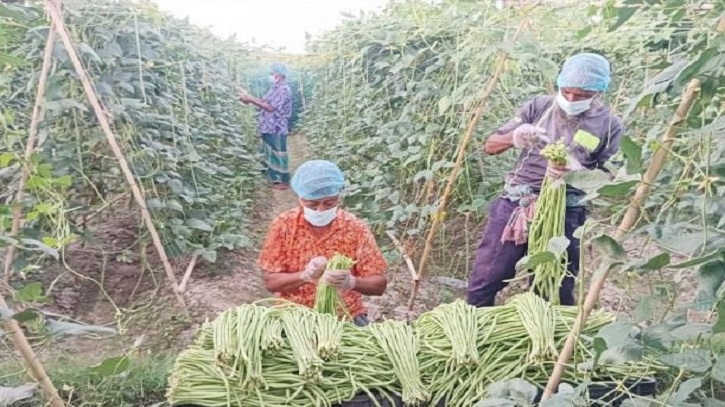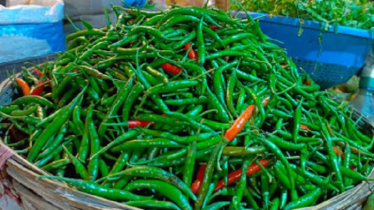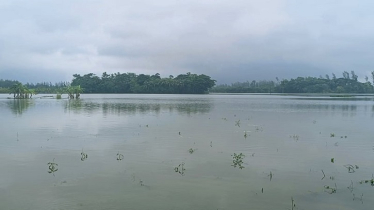
An unusual yet inspiring sight has drawn attention in Kundarghora village of Cumilla’s Sadar Dakshin upazila, where farmers and workers cultivating yardlong beans (borboti) are wearing masks, gloves, and caps while working in the fields. With strict rules banning eating, smoking, or wandering unnecessarily inside the farmland, the area resembles more of a research facility than a traditional vegetable plot.
This unique initiative is being implemented under the Ministry of Agriculture's "Partner Project" following the principles of Good Agricultural Practices (GAP). The goal: to produce export-quality, chemical-free vegetables.
On-site, local farmer Abul Kalam Azad is cultivating yardlong beans on one acre of land using this method. Entry into the field is only allowed with proper protective gear—mask, gloves, and cap. Hanging from the trellises, the long, slender beans resemble elegant earrings swaying in the wind.
To manage pests, yellow sticky traps and sex pheromone traps are being used instead of chemical pesticides. Minimal chemical fertilizers have been applied, with the focus instead on organic fertilizers and bio-pesticides.
Each yardlong bean measures nearly two feet in length, and the yield has been notably high. Sub-assistant agricultural officer Shahida Khatun has been regularly providing on-field guidance to farmers.
Farmer Abul Kalam Azad shared, "With the help of the agriculture office, we adopted this new method. As the beans are toxin-free, demand is high, and the yield is excellent."
Other farmers, including Abu Bakar Shibli, Monir Hossain, and Montu Mia, said, "It’s the first time we’ve seen vegetable farming done with gloves, masks, and caps. But the results are good, and the price is higher too. We are planning to adopt this method as well."
Upazila Agriculture Officer Jonayed Kabir Khan remarked, "This is a remarkable initiative under the Partner Project, following Good Agricultural Practices. It enables the production of safe and toxin-free vegetables, which benefits both human health and the environment. These vegetables also have export potential."





